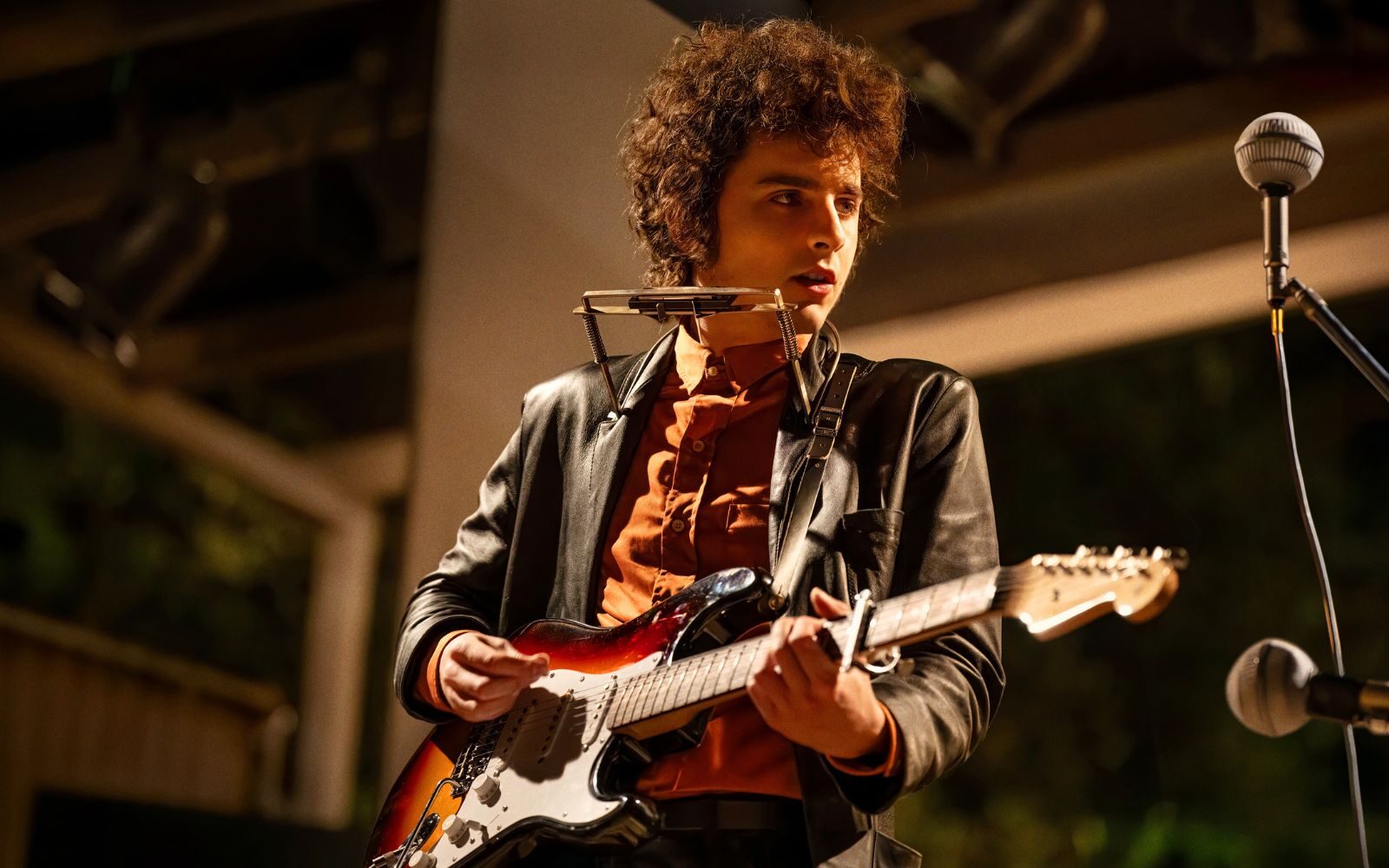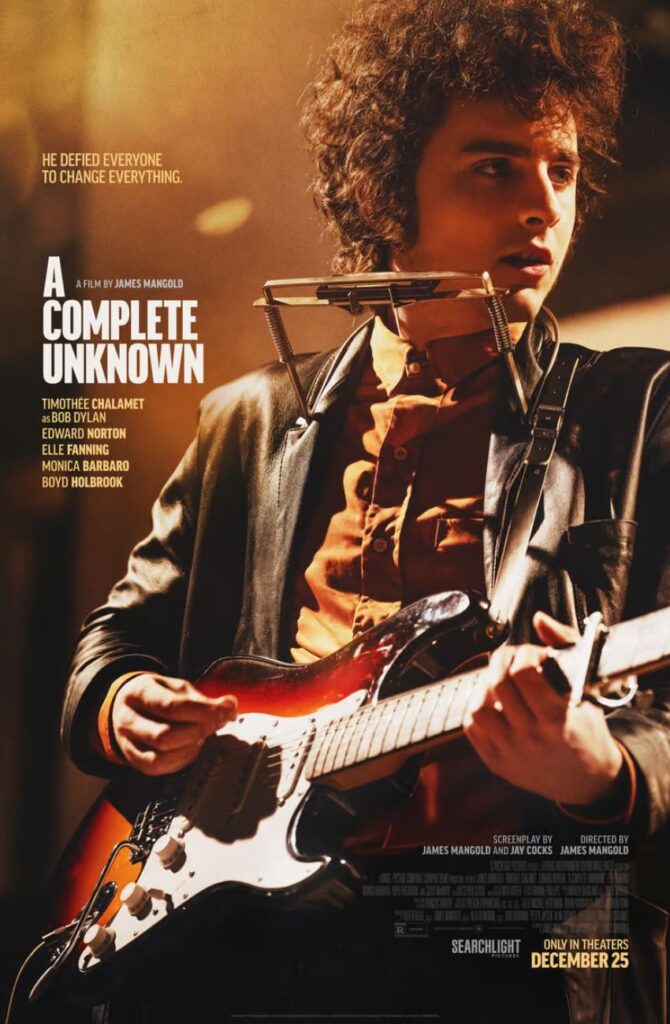
Bob Dylan's Unconventional Music Shines in the Conventional A Complete Unknown
A cinematic greatest hits compilation that rests on the laurels of its performances.
Directed by James Mangold
by Prabhjot Bains
- Published on
Early in James Mangold’s A Complete Unknown, a shabby-looking and soon-to-be-famous folk singer named Bob Dylan (Timothee Chalamet) remarks to his girlfriend “You can be beautiful, or you can be ugly, but you can’t be plain.” It’s an inspired statement that epitomizes Dylan’s enigmatic, mould-breaking musical ethos but it’s also a sentiment his biopic actively works against. For a figure defined by his wry, unconventional swings, Mangold’s film firmly goes with the grain, unfolding as a by-the-numbers musical biopic that still manages to be a hit. While it’s a film that fails to tap into Dylan’s counter-cultural frequency, it thoroughly succeeds in capturing what makes his music so magical and defining.
Based upon Elijah Wald’s book, Dylan Goes Electric, A Complete Unknown opens in 1961 with a young Dylan hitching to New York City in search of his sickly musical idol Woody Guthrie (Scoot McNairy). He then crosses paths with Pete Seeger (Edward Norton), a board member of the Newport Folk Festival, whose support quickly transforms Dylan into an overnight folk music hero.
His newfound fame forces him to navigate a prickly love triangle between his girlfriend Sylvie Russo (Elle Fanning)—a renamed version of artist Suze Rotolo— and fellow folk music star Joan Baez (Monica Barbaro), while reconciling the difference between the type of music he wants to make and what’s expected of him. It’s a struggle that climaxes at the 1965 Newport Folk Festival, where he infamously goes electric—much to the chagrin of the attendees and Seeger himself.
As a dissection of Dylan’s esoteric persona, A Complete Unknown only fosters a skin-deep analysis, as co-screenwriters Jay Cocks and Mangold muster only a thinly written story structured around a series of key musical performances. While that quality keeps Mangold’s film from truly cracking Dylan’s code, it thrives as a rousing greatest hits compilation that reminds us of why we became enamoured with him in the first place. From the intimate “Song to Woody” to a rendition of “Masters of War” at the historic Gaslight Café to blowing the famous siren whistle at the beginning of Highway 61 Revisited, it’s fascinating to see each song develop, unfold, and radiate across the screen. In its most affecting moments, A Complete Unknown manifests as a treasure trove for the devoted and an act of great discovery for the uninitiated.
Mangold’s film rests entirely on the laurels of its acting performances and subject matter—an attribute his workman-like and unvarnished direction completely leans into. Chalamet casts a spell as Dylan, assuming his aura with complete confidence and his iconic croon with an eerie ease. But it’s Norton’s Seeger who lends the film a rare timbre of introspection, as he slowly comes to realize not only the times but the realms of folk music “Are A-Changin’.” Despite A Complete Unknown being a conventional tribute to an unconventional artist, it illuminates the majesty and magic of the music that defined a generation of artists yet to come.

